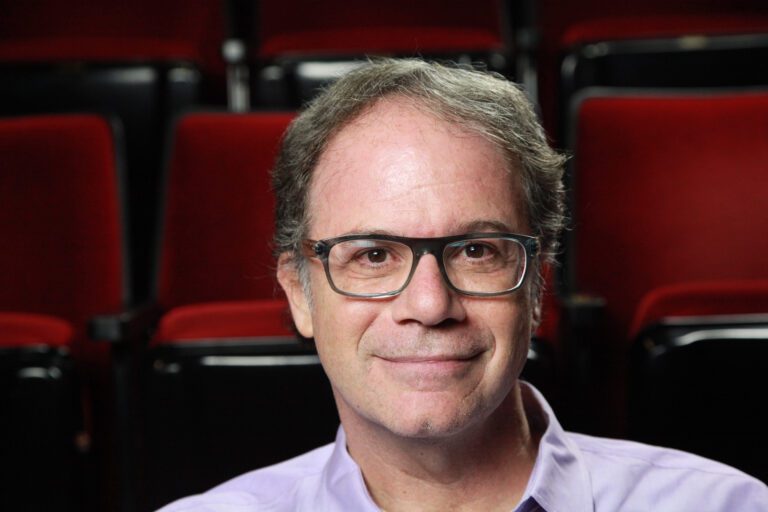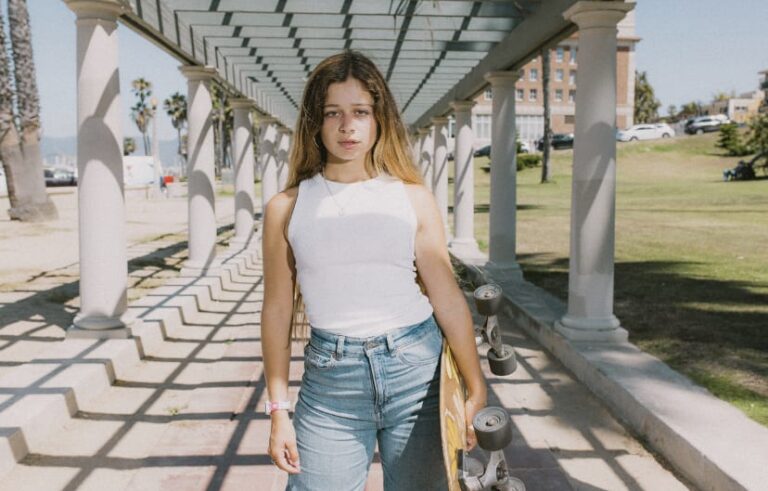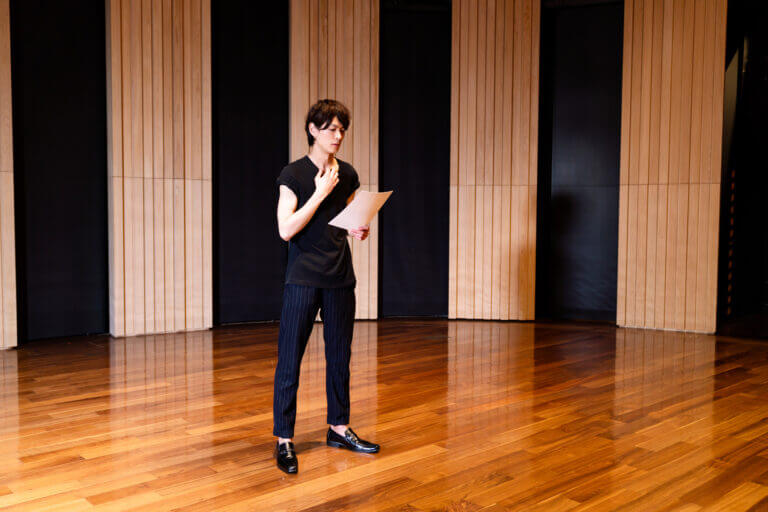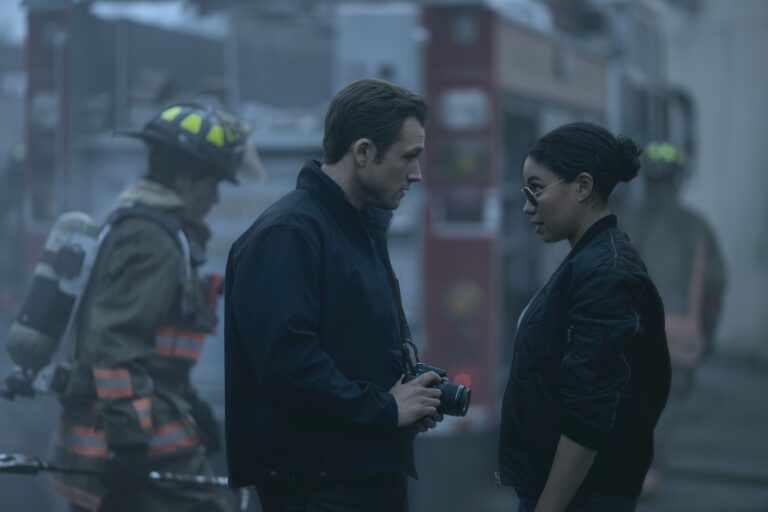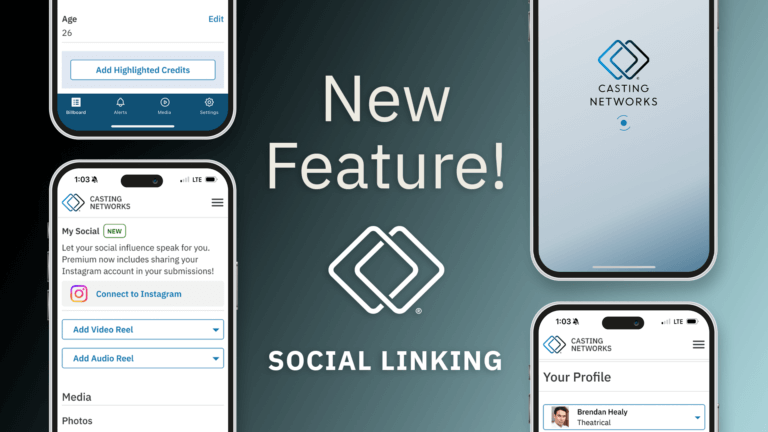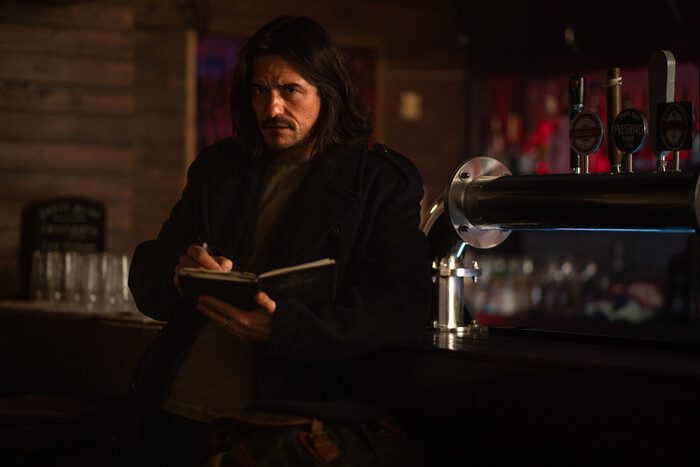Actors Tamara Bass (Baby Boy) and Meagan Good (Think Like a Man) first met when they were 16 and 19 years old, respectively, at a commercial audition in the late ’90s, and have been friends ever since.
As adults, Bass and Good formed Krazy Actress Productions to make quality content for Black women. The company’s inaugural project was the web series All That Matters, written by and starring Bass with an ensemble cast. Both women produced and split the directing duties among the five episodes.
Now the company is making its way in to feature films with the ensemble drama If Not Now, When? Here the duo co-directs, produces, and stars in from an original script by Bass. The film, which came out January 8 on demand and digital, is about four high school friends who reunite when one has a life crisis.
Now that she’s on the verge of becoming a big-screen quadruple threat for the first time in her career, Bass spoke to Casting Networks® about expanding her scope beyond acting.
Initially, you and Meagan planned on doing a different project, but when that fell through, you unearthed the If Not screenplay you wrote many years earlier. Why go back to it?
It was written when I was much younger, but now I’m older and in a different place in my life. I’m not 22 anymore. I’m 42. My group of women friends has been the one consistent thing in my life. They are the ones who have sustained me. I updated my screenplay to honor those friendships in my life. I did a complete rewrite. I gave the characters a richer connection and more prevalent issues — issues that were pressing in my friends’ lives. I also added small nuances and slice-of-life things that we all deal with daily.
You wrote an ensemble instead of a star vehicle for yourself. Was that deliberate?
I love ensemble pieces. I love the idea of getting to showcase more than one woman at a time. I’m also really big on changing the narrative of Black women. As an actor, for years going on auditions, I’d see the same tropes trotted out. It was either the sexy, beautiful, love interest — which Hollywood deemed I was not pretty enough to be — or the funny sidekick. There is more to us than that.
Without a doubt there is!
And when we did have a drama on screen, it was this big, we-shall-overcome thing because we have been downtrodden for years. While that is true, and that has been many women’s experiences, we’re not monolithic entities. The conversations that we’re having in my household or in my friends’ households are probably the same conversation you’re having in your household. That, to me, is what was missing.
The universality of things, right?
Yes, the nuance of our stories is just as universal as someone else’s. But when you hear, “oh it’s a Black movie,” all of a sudden you may think the film presents issues that no one (outside of the Black community) can relate to. I aim to write a representational life that happens to star Black women. I am a huge champion of women, women of color, and in particular Black women. We haven’t been really represented in a drama in ways that are relatable in everyday conversation. Meagan and I wanted to explore that. There was Girls Trip, which was great, but it was a comedy. There was Best Man, but in it, the women were secondary. Where are our stories? We haven’t had one since Waiting to Exhale. Last time I checked, we’re consumers too.
Are there any projects, past or current, that served as examples of universality for you?
One of my favorite movies is Nicole Holofcener’s Lovely & Amazing. I’m not a white woman, I don’t know what that’s like, but I loved that movie because it was so well done and so relatable. Television shows like Queen Sugar exposed us to this complicated Black family. Their stories are relatable to everyone, but the characters just happen to be Black. I want to keep creating stories where you don’t have to see yourself physically in, but that you feel yourself in.
Were you and Megan always doing to direct If Not?
When we decided to produce it, and embarked on a journey of getting it financed, we kept hearing, “You guys are going to produce it together, star in it, and now you want to direct it too? That’s not gonna happen.” So we went and found a different director. Then, right before the financing was locked, she got another job, so it was back to the drawing board.
What did you do?
During pre-production, we realized there had never been two women co-directing a movie, who are also producing it, co-starring in it, and one of them wrote it. That’s why people kept saying it would never happen. It’s groundbreaking. But we knew we were the only ones who could bring this story to life the way we wanted it done.
The two of you cast yourselves first in the film. How did the rest of the actors come on board?
We hired [casting directors] Kimberly Hardin and Kimberly McCollum, whom we both had long-standing relationships with. Kim Harding cast me in Baby Boy and she cast Meagan in the Think Like a Man franchise. She gets us. With Kimberly McCollum, I used to be an intern with her when she worked with casting director Chemin Bernard. Meagan and I sat down with them and told them what we were looking for. We didn’t care if the other two women were names or had social media followers. It was more about the feel. We wanted to make sure you could believe they were all friends with similar energies and mindsets. Basically, we cast through old-fashioned auditions and readings, getting a feel for people and doing it old school. Mind you, this was all pre-COVID, so we could actually be in the room with the actors, and make adjustments if we needed to.
As an actor yourself, do you find yourself feeling sympathetic towards the auditioners when you’re on the other side of the casting table?
I have complete compassion. I’m not gonna judge you harshly if you mess up the words or if you have to start over. As a theater-trained actor, I know that auditions are the most unnatural setup. It’s not representative to me of what you can do as an actor, because acting is all about reacting. If you don’t have a great reader opposite you at the audition, or if the casting director is giving you zero energy, it can throw you off. I can see through the nerves and the jitters. so being an actor allows me to have a lot more understanding for that process. If you’re nervous, take a moment, take a break, step out and come back in. I know exactly what that feels like.
Follow us on Facebook, Twitter, and Instagram for breaking industry news and exclusive offers!
Meet the Actor: Tamara Bass
January 15, 2021 | Zorianna Kit
Courtesy of ‘If Not Now, When?’
The Daily Roundup
Sign up to get must-read entertainment headlines and audition advice delivered to your inbox every weekday.
All News
Loading...







